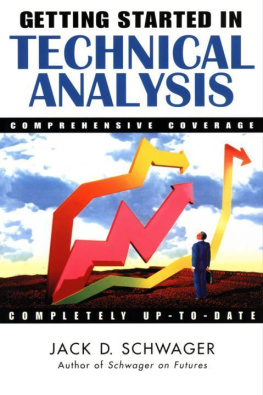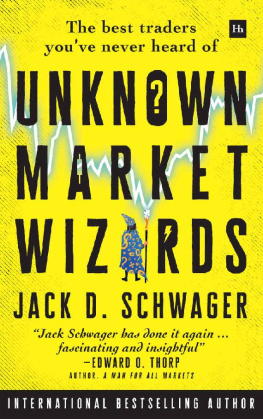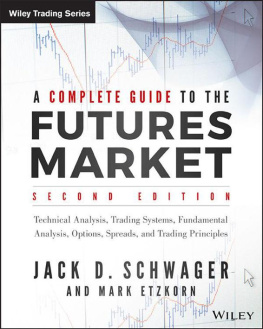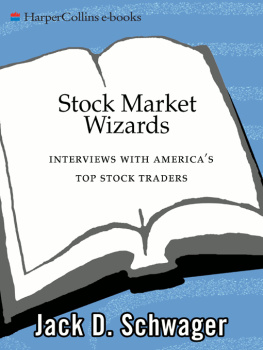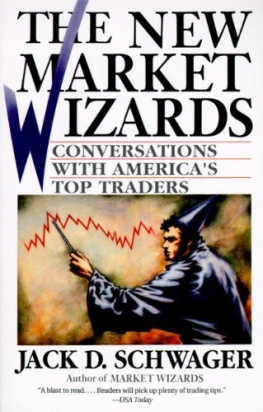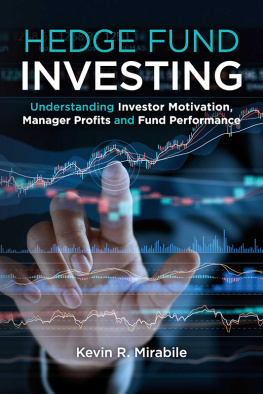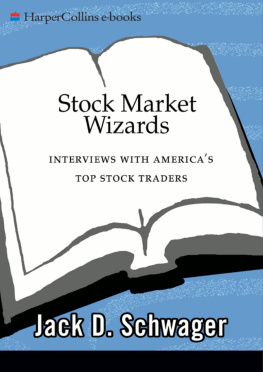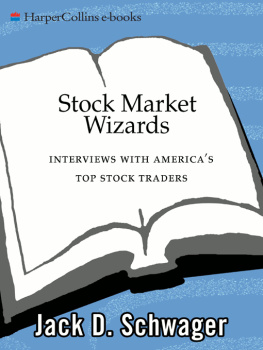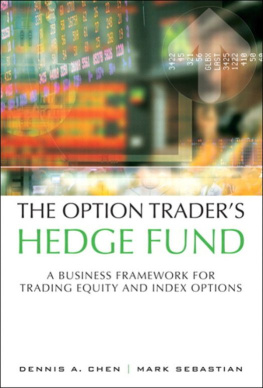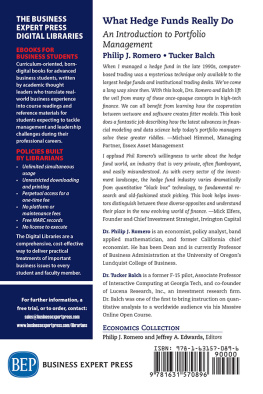The Man Who Loves Mistakes
Ray Dalio is the founder, CIO, former CEO, and current mentor (the title he assumed in July 2011) of Bridgewater, the world's largest hedge fund. As of December 2011, Bridgewater had $120 billion in assets under management and more than 1,400 employees. Bridgewater is unique in many ways beyond its size:
It has made more money for its investors than any other hedge fund in historyan estimated $50 billion over the past 20 years.
Bridgewater's flagship fund has a near zero correlation to traditional markets.
Bridgewater's flagship fund also has a very low correlation to other hedge funds.
The flagship fund uses the relatively rare combination of a fundamentally based systematic approach. (Most hedge funds that are fundamentally based use a discretionary approach, and most hedge funds that use systematic approaches base them on technical input.)
Bridgewater fosters an unusual corporate culture that encourages criticism among employees, regardless of rank.
Virtually all of Bridgewater's business is institutional (95 percent institutional, 5 percent fund of funds).
Bridgewater is among a small minority of funds with a 20-year track record.
Bridgewater was the first hedge fund to create separate alpha and beta funds that could be combined in any mix desired by the client.
The track record for Bridgewater's flagship strategy encompasses both managed accounts and funds, with each trading at multiple target volatility levels and multiple currencies. The 18 percent volatility strategy has achieved an average annual compounded net return of 14.8 percent (22.3 percent gross) over a near 20-year period, with an annualized standard deviation of 14.6 percent (16.0 percent on gross return data). The most impressive aspect of Bridgewater's performance has been the firm's ability to generate strong returns on huge assets under management. It is one thing for a hedge fund strategy to achieve strong return/risk performance on $50 million, or $500 million, or even $5 billion, but to do so on $50 billion is truly astounding. (Fifty billion dollars is the approximate assets under management Bridgewater had in its Pure Alpha strategy during 2010 when it recorded its highest annual return ever.)
Ray Dalio is a big picture thinker. Question: What one word might best describe Dalio's view of an economic model based on a thorough analysis of the entire 67-year post-World War II U.S. economy? Answer: Myopic. Dalio describes his approach as "timeless and universal. He believes an economic model should encompass multiple times and countries. Bridgewater employs a fundamentally based computer model that incorporates trading rules gleaned from both Dalio's four decades of market observations as well as Bridgewater's analysis of markets going back hundreds of years and spanning a broad range of developed and emerging economies.
Dalio named his flagship fund Pure Alpha to differentiate it from the majority of hedge funds he considers primarily beta vehicles. Dalio has been critical of hedge funds that derive most of their return from beta, but charge the higher fees associated with hedge funds on their entire return, even though the beta-derived portion can be duplicated by passive long investments. Beta measures how much an investment varies given changes in a benchmark market (e.g., S&P 500). Essentially, beta-based returns are returns that are earned by assuming various risks, most commonly market direction risk.l In contrast, alpha refers to skill-based returns, which by definition are not correlated to any market or risk factor. The name of Bridgewater's flagship fund, Pure Alpha, leaves little doubt as to the type of return it seeks to capture. True to its name, Pure Alpha has had near zero correlation to equities and fixed income and very low correlation (0.10) to hedge funds.
Bridgewater also has a beta-based strategy, All Weather, which has an objective of delivering beta returns in a portfolio mix that is balanced so that it will do well in different market environments. In 2009, Bridgewater launched All Weather II, which is a constrained version of All Weather that limits "safe environment investments when the firm's "depression gauge indicator is activated.
The idea that the same fundamentals would have different implications under different circumstances and environments is an essential component of Dalio's analytical thinking. As a result, categorization is an important tool for both conceptualizing problems and finding solutions. One example of category-based thinking is what I would call quadrant conceptualization two key factors and two states provide four possible conditions. Bridgewater's beta fund, the All Weather Fund, provides an example of this type of thinking. The fund combines two factorsgrowth and inflationand two statesincreasing and decreasingand comes up with four conditions:
Growth increasing
Growth decreasing
3. Inflation increasing
Inflation decreasing
Thi s four-part categorization reflects Dalio's view that changes in expected growth and expected inflation are the dominant reasons that some asset classes do well when others do poorly. The fund's strategy is to balance the portfolio with investments that do well in each of the above four environments. In contrast, most conventional portfolios substantially overweight assets that do well in the first category (i.e., growth-increasing environment), leading to unbalanced portfolios that can do poorly in other types of environments.
Another example of quadrant conceptualization is the way Dalio categorizes the economic outlook for different countries. Here he divides the world into two types of countriescreditors and debtorsand he defines two key distinguishing characteristics for eachcountries that can exercise independent monetary policy and those that can't. So there are four classifications of countries:
Debtor countries with independent monetary policy (e.g., U.S., U.K.).
Debtor countries without independent monetary policy (e.g., Greece, Portugal).
3. Creditor countries with independent monetary policy (e.g., Brazil).
Creditor countries without independent monetary policy (e.g., China because it pegs its currency to the dollar, which impedes its ability to
raise interest rates).
Dalio loves mistakes because he believes that mistakes provide learning experiences that are the catalyst for improvement. The concept that mistakes are the path to progress is one of the pillars of Dalio's life philosophy and the Bridgewater culture. Dalio is almost reverential in his comments about mistakes:
I learned that there is an incredible beauty to mistakes because embedded in each mistake is a puzzle and a gem that I could get if I solved it,
i.e., a principle that I could use to reduce my mistakes in the future. I learned that each mistake was probably a reflection of something that I was (or others were) doing wrong, so if I could figure out what that was, I could learn how to be more effective.... While most others seem to believe that mistakes are bad things, I believe mistakes are good things because I believe that most learning comes via making mistakes and reflecting on them.
Dalio has set down his life philosophy and management concepts in Principles, a 111-page document that defines the Bridgewater culture and is required reading for employees. Principles is divided in two sections, the first, which Dalio calls My Most Fundamental Principles, and the second, a resulting compendium of 277 management rules. Not surprisingly, many of the management rules focus on mistakes. A sampling:
Recognize that mistakes are good if they result in learning.
Create a culture in which it is okay to fail but unacceptable not to identify, analyze, and learn from mistakes.
We must bring mistakes into the open and analyze them objectively, so managers need to foster a culture that makes this normal and penalizes suppressing or covering up mistakeshighlighting them, diagnosing them, thinking about what should be done differently in the future and then adding that new knowledge to the procedures manual are all essential to our improvement.
Next page

